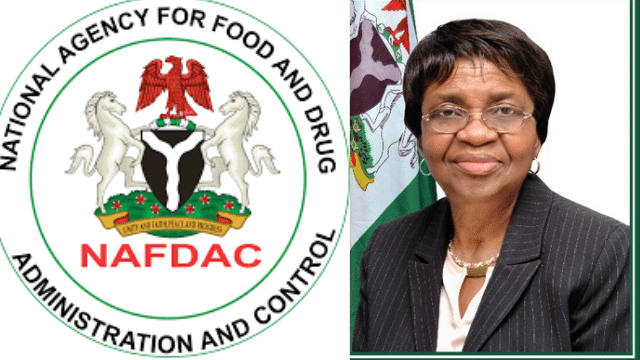Nigeria News
Aspartame Sweetener: NAFDAC Counters WHO’s Position, Gives New Directives On Usage

The National Agency for Food and Drug Administration and Control (NAFDAC) has given a new directive on consuming soft drinks containing aspartame sweeteners.
According to the agency, “Aspartame is safe to consume in food products within the established limit of 40mg/kg body weight.”
Naija News reported last week that the International Agency for Research on Cancer (IARC) had declared aspartame, one of the most common artificial sweeteners, as a possible carcinogen.
Aspartame is an odourless white powder discovered in 1965 by US chemist James Schlatter.
It is approximately 200 times sweeter than sugar which means only a tiny amount is needed to sweeten foods and beverages. Because it is only required in small quantities, it is used as a substitute for sugar in soft drinks.
While, the controversy over the safety of aspartame has been on for decades, it is approved for use in Nigeria as a non-nutritive sweetener with an acceptable daily intake of 40mg/kg of body weight.
The low-calorie sugar substitute is also approved by the US Food and Drug Administration (FDA), the United Kingdom’s Food Standards Agency, and many other countries.
However, this platform learned that IARC, the World Health Organisation’s (WHO) cancer research arm, evaluated the impact of aspartame — based on scientific data collected from various sources, including peer-reviewed papers, governmental reports, and studies conducted for regulatory purposes.
In a separate assessment, the joint WHO and Food and Agriculture Organisation’s expert committee on food additives (JECFA) said aspartame remains safe to consume at already-agreed levels of 40mg/kg of body weight.
But in a counter position, NAFDAC has said currently, there are no health implications associated with the consumption of food containing aspartame.
The NAFDAC Director General, Prof. Mojisola Christianah Adeyeye, told The Guardian that the current acceptable daily intake (ADI) of 40 mg/kg body weight/day is safe for the general population.
Aside from soft drinks and beverages, some other food items that contain the sweetener in Nigeria include fruit nectars, flavoured fluid milk drinks, flavoured drinks, chewing gums, and fruit jams.
The NAFDAC DG, however, noted that even though there is no doubt that most healthy individuals can safely consume aspartame but it has long been recognised that excessive intake of phenylalanine, one of the constituent amino acids of aspartame, can pose a hazard to individuals suffering from an inherited metabolic disorder called phenylketonuria.
“For this reason, all foods sweetened with aspartame must indicate, ‘contains aspartame,’” she added.
On the safer side, Adeyeye mentioned other healthier alternatives besides sugar and saccharin, including honey, dates, and fruits (fructose), adding that currently, the agency does not recommend a ban on the use of non-nutritive sweeteners unless there is a global, scientifically established risk to humans.
She also pledged that NAFDAC would continue to ensure that the use of aspartame in food is technologically justified and within safe levels, and manufacturers of foods sweetened with aspartame have a cautionary statement.












